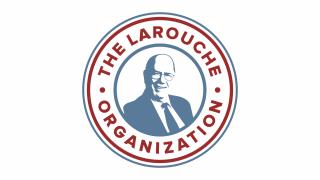April 26—The Ukraine theater of NATO’s proxy war against Russia continues on its trajectory of an early superpower showdown, with relentless chatter broadcast by Ukrainian authorities, from President Zelenskyy on down, of a coming Ukrainian “counter-offensive” to include seizing control of Crimea—a nuclear tripwire if ever there was one. High-level Russian officials continue to warn, at every opportunity, about where that trajectory leads—“a hot, full-scale World War III,” as Russian Security Council Deputy Chairman Dmitry Medvedev stated yesterday.
In such a touch-and-go strategic situation, it’s critical to keep a sharp focus on who here is merely the dummy (that professional comedian assigned to the Ukrainian Presidency), and who the ventriloquist. As the Russian embassy in London put it in a statement issued yesterday: “London will not succeed in shifting blame to its Kiev clients for their crimes.”
All roads do, in fact, lead to London.
For example, there is the British Empire’s authorship of the insane plans to shatter Russia and eliminate it as a nation altogether, which is being actively promoted in a traveling road show across the United States this week—and which we document in the EIR article appended to this Briefing. More central still is the collapse of the bankrupt trans-Atlantic financial system—controlled by the City of London and their junior partners on Wall Street—which is the underlying cause of the drive to war.
Scarcely six weeks after Silicon Valley Bank went belly-up on March 10, the crisis in the U.S. banking sector is back with a vengeance, with California’s First Republic Bank front and center. With some $100 billion in deposits stampeding out of the bank since the beginning of 2023, and the value of its stock plunging to near junk status over the last week, authorities suspended trading on the morning of Wednesday, April 26.
The City of London’s Financial Times ran a worried article late Tuesday, April 25, headlined: “Sharp Sell-Off in First Republic Shares Causes Alarm in Washington,” which sent a dark message of foreboding to their readers: “government officials and regulators scramble to come up with plan,” and banking officials are “in touch with the U.S. government, which is on high alert.” The options on the table are all of the same bad choices faced in mid-March in the case of Silicon Valley Bank—like First Republic, a mid-sized bank heavily involved in tech start-up and other sorts of speculation: a) let it fail, and let the contagion rip throughout the entire speculative financial system; b) have the FDIC exceed its regulatory authority of insuring deposits only up to $250,000, and instead bail out all depositors at First Republic (the gambit used with Silicon Valley); or c) convince a half-dozen mega-banks to step in and buy up First Republic, including all the non-performing speculative garbage on its books.
On the other side of the Atlantic, Union Bank of Switzerland (UBS), currently the third largest in Europe, is sweating bullets over how it is going to swallow, and presumably digest, all of the financial garbage it agreed to take over from the failed Credit Suisse, which went under on March 19, right after Silicon Valley Bank. UBS is so intertwined with the global derivatives bubble, that the Financial Stability Board considers it a “global systemically important bank”—meaning it has to be kept afloat, or the whole system could implode.
But the hard reality is that the $2 quadrillion speculative bubble cannot be kept afloat. The whole system is going to implode. And the only open question is whether the people of the United States and Europe will be smart and courageous enough to demand their governments get off that sinking Titanic, while survival is still possible. As Helga Zepp-LaRouche put it in her weekly webcast discussion today: “The war danger, in my view, is increasing by the day. Step by step we are moving closer to a possible catastrophe.”
It’s time to silence the ventriloquist, and listen to our own better angels.






